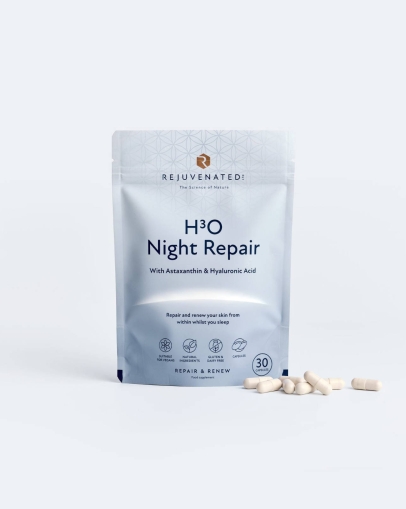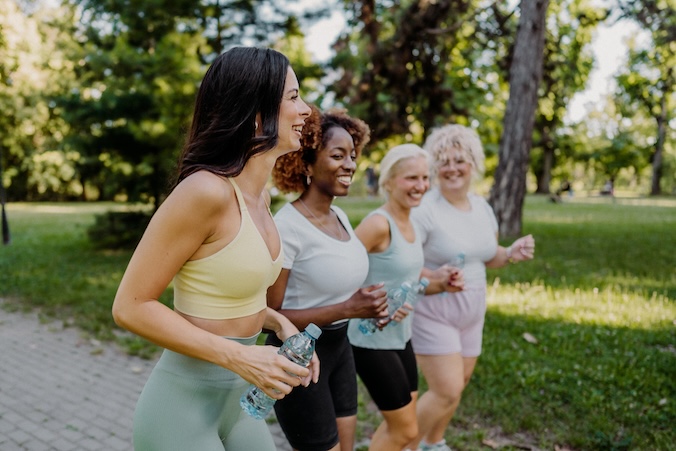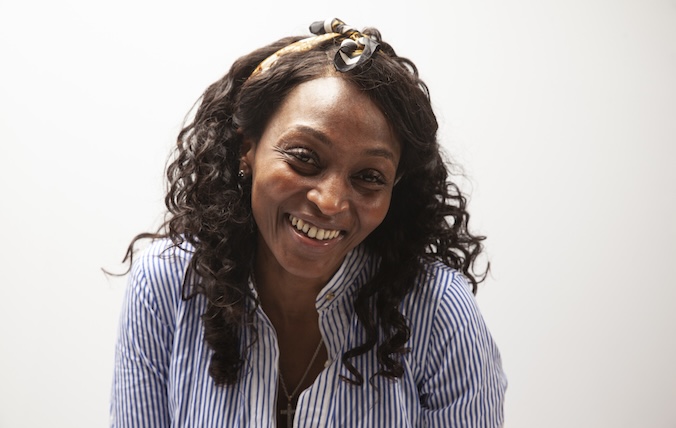How does the Circadian Rhythm work?

With the days growing shorter and darker by the day, many of us will be starting to feel the effects of winter. If you’re struggling to climb out of bed, hit snooze on repeat, feel de-energised throughout the day, or even experience mood swings, then chances are you may be struggling to get to grips with the darker months. Yet, aside from the darker days, did you know that your circadian rhythm also has a say in how you feel – and in how you look?
The Circadian Rhythm: What is it?
The circadian rhythm may sound complicated, but it’s essentially our body’s internal clock, controlled by our brain’s hypothalamus. It’s why you may feel energised at certain times during the morning, yet foggy and sleepy come 4pm.
How does the Circadian Rhythm work?
Also known as our sleep / wake cycle, it helps our body to alternate between sleepiness and alertness at regular periods during the day (and night). For example, most of us have a huge dip in energy between 2am and 4am, and after lunch (think 1pm-3pm).
Yet, while our brains tend to work to a cycle, other factors can affect our circadian rhythm too. For example, when it’s dark outside, our eyes send a message to our brain telling it we feel sleepy (this is why it’s much easier to bounce out of bed in the summer!). This triggers the release of melatonin, which helps us to unwind and feel sleepy.
Of course, we’re all different, and we’ll all have different body clocks! This can explain why some people are night owls, and why others are at their brightest in the morning.
What Else Do I Need to Know?
If you’re sleep-deprived, you’ll feel the effects of your circadian rhythm much more strongly! It’s also important to know that our body clocks work better when we keep to a regular sleep pattern – this is why shift workers can struggle, and why jet lag can become over-whelming! If you struggle to fall asleep take one capsule of H3O Night Repair in the evening to help you relax and drift away.
As we get older our Circadian rhythm doesn’t perform as well as it once did. Processes determined by our internal clock start to get out of sync, including our sleep-wake cycle, hormone production and metabolism.
An enzyme within our cells SIRT1 plays an essential role in regulating our circadian rhythm patterns. It helps to suppress PER2, a protein which acts as a clock repressor with age. SIRT1 works synergistically with another enzyme, NAD (Nicotinamide adenine Dinucleotide). A recent study revealed that stimulating the levels of NAD helps to restore our circadian rhythm to a more youthful pattern. It’s believed that this may happen due to the part that NAD plays a in stimulating SIRT1.
The Rejuvenated Regenerate formula contains 8 potent enzymes which work to increase NAD levels and activate sirtuins in the cells to support your Circadian clock to improve your sleep pattern and promote a more restful sleep.
Can My Circadian Rhythm Affect Anything Else?
In short, yes!
Our circadian rhythms don’t just affect how alert we feel during the day – scientists believe they may affect our metabolic cycles, and even our skin!
A group of scientists from the UC of Irvine studied the role of the circadian rhythm in skin stem cells. They found that our handy body clocks play a crucial role in co-ordinating our metabolic cycles, and also in cell division.
This means that an out-of-synch circadian rhythm could put us at risk of developing certain cancers and diseases, and even speed up the ageing process by increasing oxidative stress.
Poor sleep cycles can also affect our melatonin cycles (the sleep hormone), which works hard to help repair the body as we sleep.
So, how else can our circadian rhythm affect our skin?
Dawn:
Our body’s internal clock causes our temperature to rise ever so slightly at dawn, which then starts the ‘wake’ cycle’. At the same time, if we’ve had a good night of sleep, our skin should look its freshest.
This is because, late at night, the epidermal (skin) stem cell works hard to create new cells, replacing the old ones. This is why it’s important to get your beauty sleep – and to keep a solid routine when it comes to your sleep!
Our skin may also look smoother first thing in the morning. This is because a good stretch of sleep can help the face to mask wrinkles – plus, as the day goes on, gravity shifts any fluid to the lower part of our bodies, meaning our skin looks less plump by evening.
Morning:
Morning is when many of us will look freshest and brightest. Specifically, scientists believe we look our best at around 10am – this is when skin tone is clearer, and our faces appear more luminous and brighter.
This happens because our skin often loses more water (through the pores) during the night and less during the morning. However, if you have a poor sleep cycle, or experience bad quality sleep, this mid-morning glow may evade you…
This is where our H3O Hydration Sachets, which help to hydrate the skin from the inside, out, may come in handy!
Midday:
Our skin’s fibroblasts, which promote healing, tend to get to work more during the day. This means that our skin will often heal faster from damage sustained during the day.
Yet, on the downside, come midday our skin may be feeling a little oilier, particularly in the T-zone area. This is because sebum, which protects the skin and lubricates it, peaks at around midday (12pm-3pm), and is at its lowest in the evening. An increase in skin temperature may also trigger more sebum.
Afternoon:
By the time we hit the afternoon slump, our skin has often been hit at all angles – think weather, pollution, central heating, and the sun’s harmful rays.
This can also wreak havoc on our skin’s own inner clock, so it’s important that we protect ourselves as much as possible – think serums or mists with anti-pollution formulas, and always a strong, good quality SPF with both UVA and UVB protection.
On the flipside, our skin’s very own DNA repair capabilities are powerful in the afternoon, with cell synthesis starting here and lasting into the evening.
Evening:
Moving into the evening, our skin becomes more permeable, which makes it the perfect time for some TLC – and a very bad time for irritants! Creation of new skin cells is also around 20 to 30 per cent higher in the evening, so it’s the perfect time to lend it a helping hand – think richer night creams and serums, and also supplements to support the skin’s natural process. Our Collagen Shots are designed to be taken at night and contain hydrolysed marine collagen, Hyaluronic acid (AKA the fountain of youth), acai berry and much more to nourish skin from the inside, out and delay signs of ageing.
Meanwhile, our Night Repair capsules make the perfect partner and contain calcium, magnesium and vitamins A, B, C, D & E as well as pine bark and astaxanthin to help you wake feeling refreshed and renewed.
Night:
Night is the most common time for our skin to flare up or become itchy or irritated. This is because our skin is more permeable in the evening, and water loss and increased blood flow may trigger certain conditions such as eczema.
If you can, try to control heat in the bedroom, and also apply any prescribed creams before bed to keep itching to a minimum.
However, for those of us who don’t suffer with skin conditions, night is the perfect time for skin repair and recovery – but only if we’re getting enough sleep in the first place!
The Takeaway?
As you can see, if you want healthy, glowing and fresh skin, starting with good sleep hygiene and a healthy sleep cycle can work wonders.
The next time you’re tempted to watch back-to-back box sets on Netflix, it might be time to wind down and head to bed…







